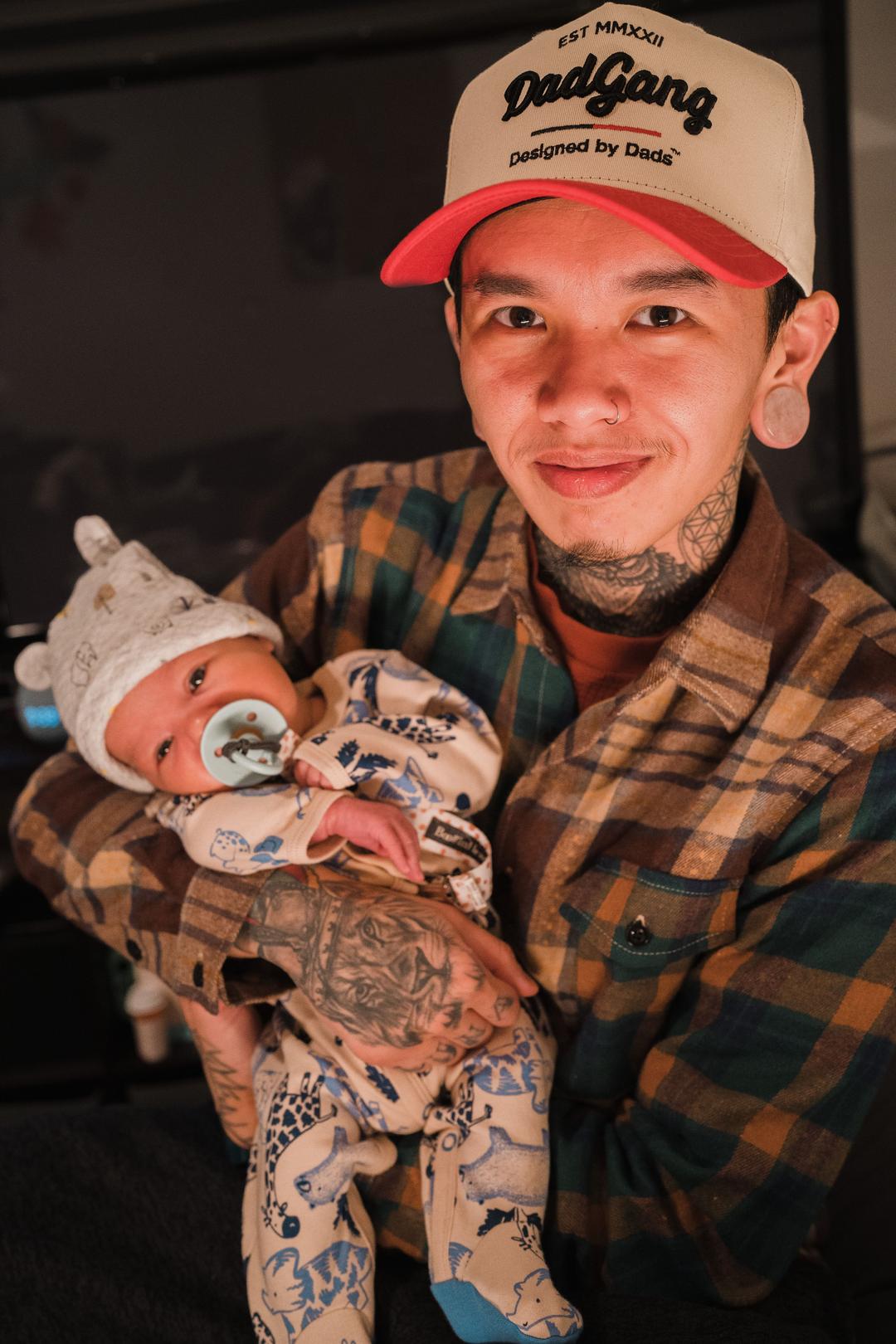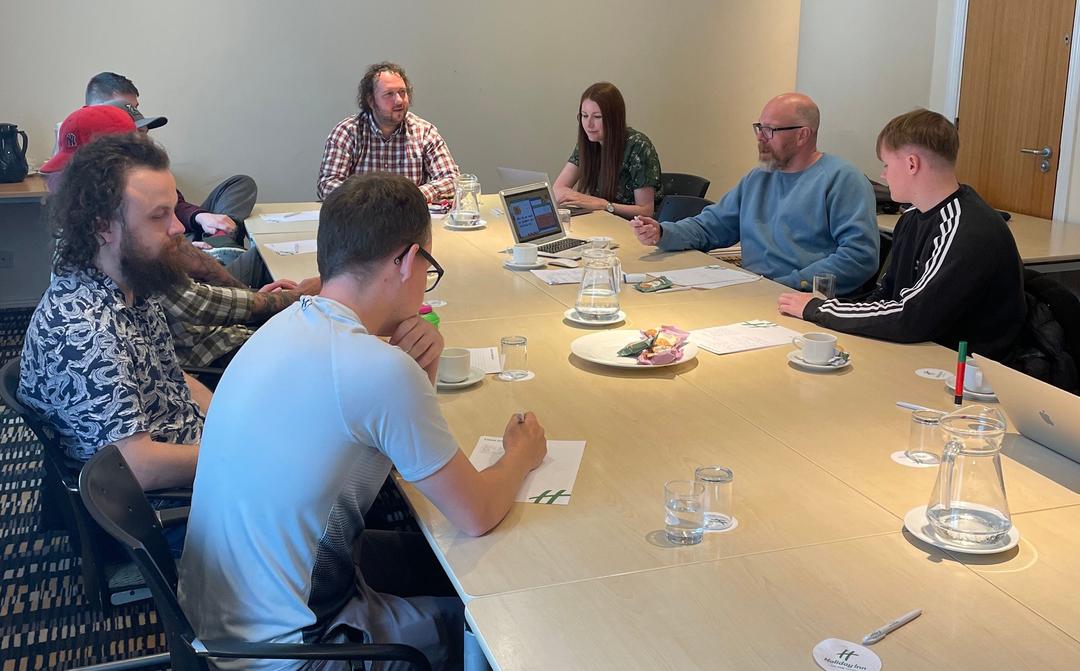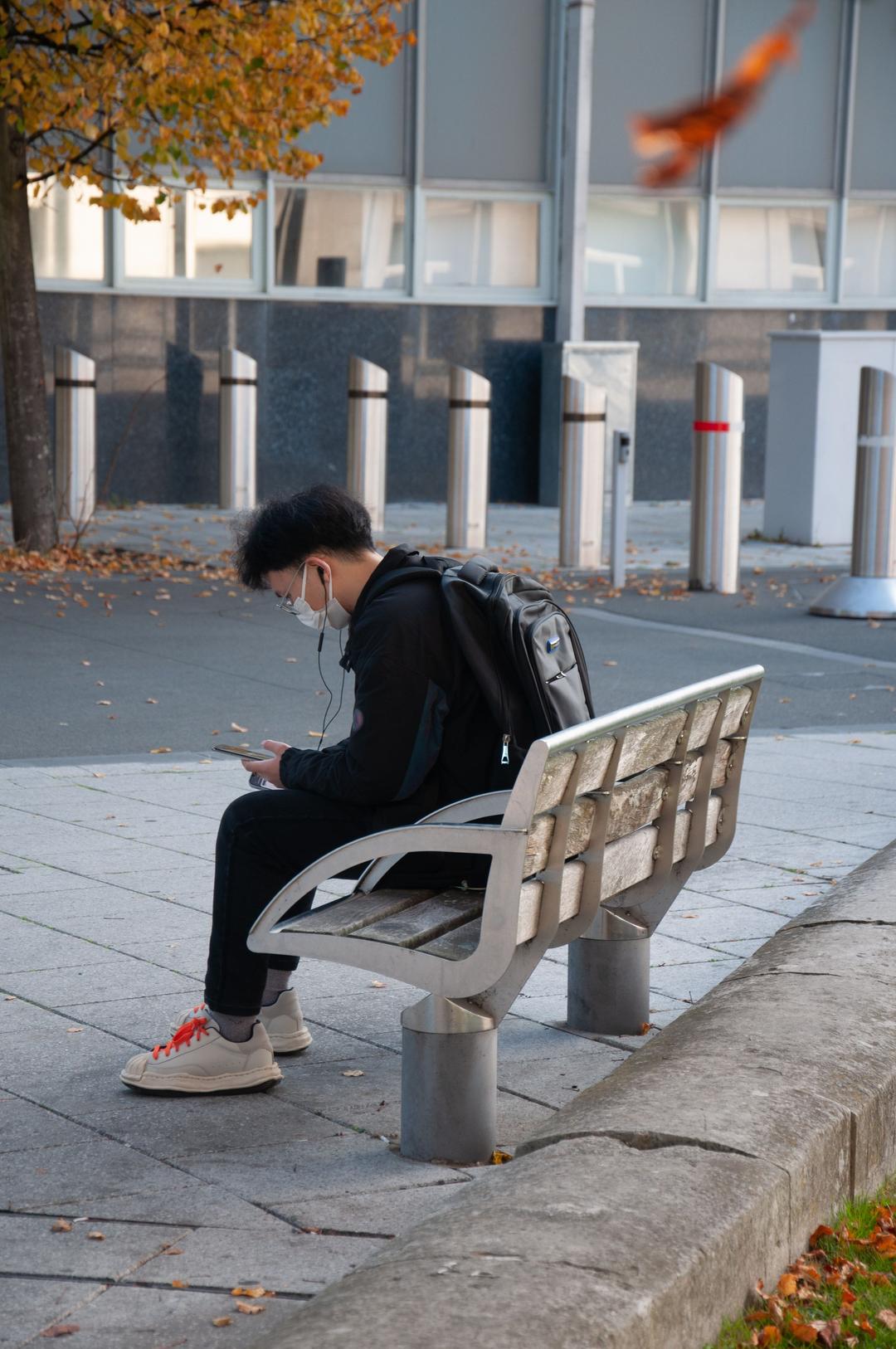Journal Articles
Please contact us directly if you don't have access to the journals where the articles are published and we can send you a copy
Publications by list
Tarrant, A. (2025) Father-inclusion: a sensitising concept and framing strategy for addressing the systemic exclusion of men as-fathers across services, Families, Relationships & Societies, 0(0)
Way, L., Tarrant, A., & Ladlow, L. (2024) Enhancing the participation of young and minoritised fathers in peer research: An intersectional reflexive analysis of methods and ethics, Methodological Innovations, 17(4): 261-272.
Way, L. (2024) Dadzine: Zine making with young fathers as a participatory and DIY approach to research. DIY, Alternative Cultures & Society, 0(0).
Tarrant, A., Way, L., & Ladlow, L. (2024) Increasing father engagement among minoritised fathers through proactive service support and outreach: insights from a participatory pilot study. Community, Work & Family, 1–18.
Ladlow, L. (2024) ‘I don’t feel like a young dad. I feel like an unprepared dad’: young parenthood, welfare support and accelerated transitions to adulthood in the UK and Sweden. Journal of Youth Studies, 1–16.
Tarrant, A. (2023) Instigating father-inclusive practice interventions with young fathers and multi-agency professionals: the transformative potential of qualitative longitudinal and co-creative methodologies, Families, Relationships and Societies,
Andreasson, J., Tarrant, A., Johansson, T. and Ladlow, L. (2023) Perceptions of gender equality and engaged fatherhood among young fathers: parenthood and the welfare state in Sweden and the UK, Families, Relationships and Societies, 12 (3): 323–340.
Tarrant, A., Way, L. and Ladlow, L. (2023) ‘Oh sorry, I’ve muted you!’: Issues of connection and connectivity in qualitative (longitudinal) research with young fathers and family support professionals, International Journal of Social Research Methodology, 26 (3): 263-276.
Tarrant, A., Ladlow, L., Johansson, T., Andreasson, J., and Way, L. (2022) The Impacts of the Covid-19 Pandemic and Lockdown Policies on Young Fathers: Comparative Insights from the UK and Sweden, Social Policy and Society,
Way, L., Tarrant, A., Ladlow, L., York, J., Gorzelanczyk, A., Brown, D. and Patterson, W. (2022) Co-creating with Young Fathers: Producing Community-Informed Training Videos to Foster more Inclusive Support Environments, Sociological Research Online, 27(3), 675-683.
“Oh sorry, I’ve muted you!”
Issues of connection and connectivity in qualitative (longitudinal) research with young fathers and family support professionals
This article considers how the unanticipated use of remote qualitative methods during the pandemic impacted processes of research connection and connectivity in qualitative (longitudinal) research. First, we consider questions of connection when seeking to (re)establish and retain connections with project stakeholders and marginalised participants through the pivot to remote methods. Second, we reflect on how processes of maintaining participation and interaction were impacted by practical and technological issues associated with the digitally mediated forms of connectivity available.
Available open access!

Co-creating with young fathers: Producing Community-Informed Training Videos to Foster more Inclusive Support Environments
Learn about the Diverse Dads study where we co-created films led by young dads as peer researchers who sought to explore how to better support minoritised young dads.
Available open access!

DadZine!: Zine making with young fathers as a participatory and DIY approach to research
This article considers how zine making might be understood as a participatory and DIY approach to research through a focus on zine making workshops with young fathers. Drawing upon Fletcher's conceptualisation of ‘zine ethos’, zines’ DIY ethic, their democratic and participatory ideal and their transformative potential will each be considered reflexively, highlighting some of the ways these might be enacted through zine making in the context of research but also potentially constrained. This article extends existing empirical work concerning zines in the context of research and offers some fresh reflections on their value as a participatory and DIY approach to research.
Increasing father engagement among minoritised fathers through proactive service support and outreach: insights from a participatory pilot study
Based on analyses of multi-perspective data generated from a small participatory and exploratory pilot study called Diverse Dads, this article considers how service engagement with minoritised fathers might be addressed in contexts of family and youth support. Semi-structured qualitative interviews and focus groups, complemented by a small survey, were conducted by beneficiaries and employees of a specialist charity supporting young fathers, with regional practitioners, service managers and minoritised fathers. These explored how and why services, which traditionally serve White, working-class communities, might be ‘hard(er) to access’ for minoritised fathers and how this might be addressed. In a context of considerable constraint for services, this article identifies how more accessible, inclusive support pathways and environments might be fostered. Key processes explored include how services can increase their accessibility, visibility, and appeal; become more proactive with outreach to fathers in diverse communities; and sustain father-inclusive support for all fathers.
Instigating father-inclusive practice interventions with young fathers and multi-agency professionals: the transformative potential of qualitative longitudinal and co-creative methodologies
Interdisciplinary social sciences literature on the value and significance of engaged fatherhood and father-inclusive approaches to practice for enhanced family outcomes have begun to reach a consensus. Yet there has been less attention to how research knowledge about fatherhood, including that which is co-produced with and for fathers, can be more effectively translated and embedded in practice and policy contexts. This article elaborates on a cumulative, empirically driven process that has established new relational ecologies between young fathers, multi-agency professionals and researchers. It illustrates how these ecologies, supported by longitudinal and co-creative research combined, are driving societal transformations through knowledge exchange and the instigation of new father-inclusive practice interventions that address the marginalisation of young fathers. The methodologies, including the co-creation of the Young Dads Collective and its impacts on young fathers and multi-agency professionals, are evaluated, confirming them as powerful and productive mechanisms for embedding father-inclusive practices within existing support and policy systems.
You can access the article via the journal webpage or to request a copy.

Perceptions of gender equality and engaged fatherhood among young fathers
Parenthood and the welfare state in Sweden and the UK
This article presents analyses from an international empirical study of young fatherhood in Sweden and the UK. Young fathers in both countries express an encouraging commitment to contemporary cultural imperatives for engaged fatherhood. However, differences in welfare and parental leave systems have a clear influence on the extent to which the young men in the respective countries can fulfil their parental commitments.

The Impacts of the Covid-19 Pandemic and Lockdown Policies on Young Fathers: Comparative Insights from the UK and Sweden
COVID-19 and young dads
This article explores the impacts of the first wave of the COVID-19 pandemic and lockdown policies on young fathers and their families in the UK and Sweden.





